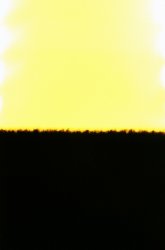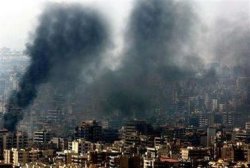attached is a short essay from one of the first two books (i can't remember which one)
That's a rather depressing quote (for me, at least). My photography is more about seeing than manipulation. Looking is hard work (if you're doing it right...), but the effort pays off. It makes life richer, more meaningful, more creative... and looking through a camera is just one part of this process.
I know what can be done with Photoshop (even if I'm not adept enough to do it myself), and I know too that people seldom know when to stop. Most of the manipulated images I see have simply been 'over-cooked': too much colour manipulation, too dramatic HDR, etc. It becomes like Hollywood car chases: they have to be more and more exciting to stop the audience yawning. The result: we become over-stimulated, but under-nourished... unable to respond to imagery that isn't brash, blatant and eye-poppingly zappy.
My pleasure in photography (mostly landscape) lies in going in the opposite direction: slowing down, learning to be more patient, enjoying the process rather than just looking for 'results' (which, ironically, seems to produce more better pictures, not less). It's looking for subtlety... mostly in what light does to landscape. It's 'reading' the landscape, and responding to it. Post-production is limited to colour correction (rather than colour manipulation) and trying to bring the image back to what I originally saw (particularly in regard to the human eye being able to cope with huge variations in lighting intensity... while digital sensors struggle).
Post-production offers many temptations; how amazing to be able to change an image so dramatically simply by moving a slider left or right (well, it's amazing to those of us brought up on film photography...). But what matters to me is what I originally saw. Instead of spending hours creating masks and layers in Photoshop, I'd rather go to interesting places, sleep in my van, set the alarm for 'early' and have the dawn landscape to myself. The fascination is to try to capture some of what I saw on film (or, now, a digital file).
There's a big difference (IMO) between an image that's seen... and an image that's assembled or heavily manipulated. And too much of one can make it hard to respond to the other. It's like overpowering our taste-buds with glutinous sauces, so we can no longer eat our meals without great dollops of ketchup.
Apologies if this sounds pretentious. It's not meant to be. I just see people getting lost in a world of post-production techniques, and photographs which have a pleasantly glossy sheen but which don't mean anything.





